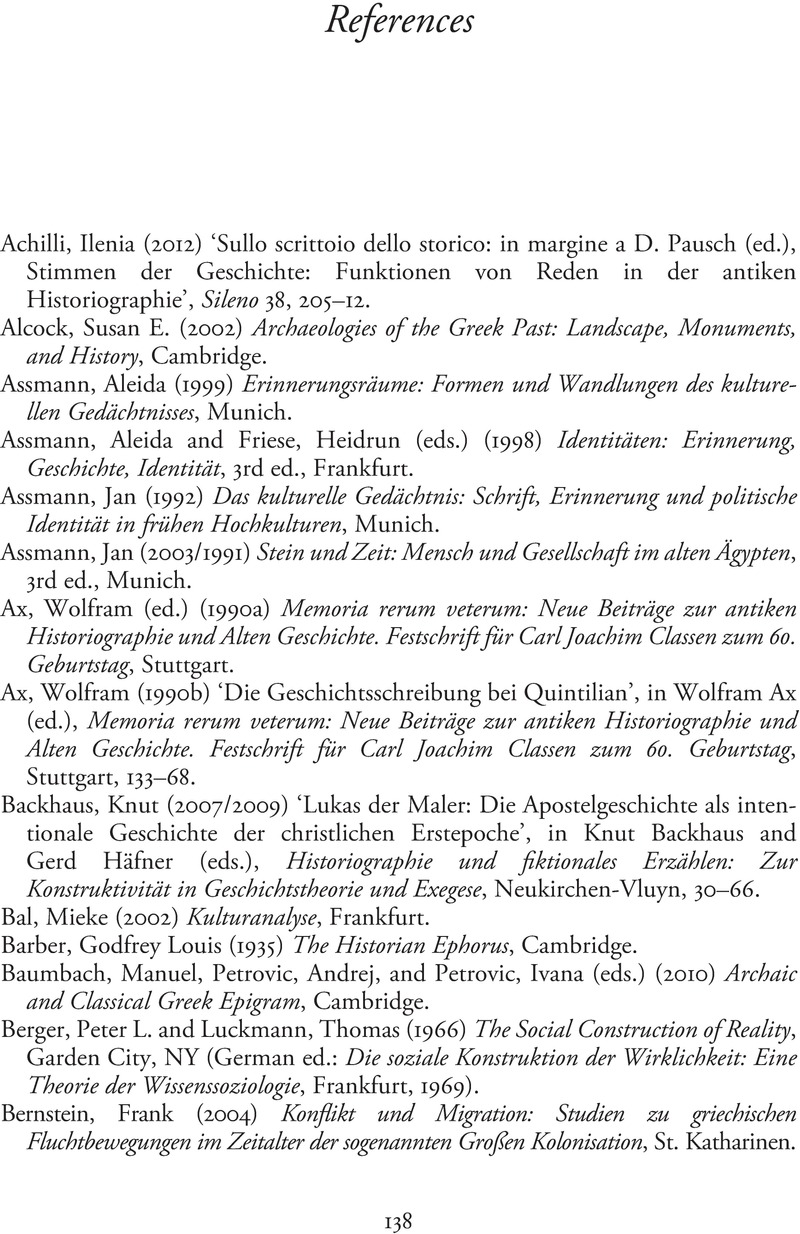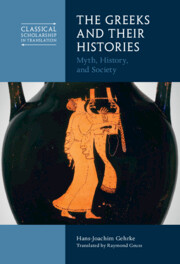Book contents
- The Greeks and Their Histories
- Classical Scholarship in Translation
- The Greeks and Their Histories
- Copyright page
- Contents
- Foreword
- Preface to the German Edition
- Preface
- Note on Abbreviations
- Introduction
- Chapter 1 The Locus of Intentional History
- Chapter 2 Greek Myths As a History of the Greeks
- Chapter 3 Greek Historiography between Past and Present
- Chapter 4 Greek Historiography between Fiction and Truth
- Concluding Perspectives
- References
- Index
- References
References
Published online by Cambridge University Press: 01 December 2022
- The Greeks and Their Histories
- Classical Scholarship in Translation
- The Greeks and Their Histories
- Copyright page
- Contents
- Foreword
- Preface to the German Edition
- Preface
- Note on Abbreviations
- Introduction
- Chapter 1 The Locus of Intentional History
- Chapter 2 Greek Myths As a History of the Greeks
- Chapter 3 Greek Historiography between Past and Present
- Chapter 4 Greek Historiography between Fiction and Truth
- Concluding Perspectives
- References
- Index
- References
Summary

- Type
- Chapter
- Information
- The Greeks and Their HistoriesMyth, History, and Society, pp. 138 - 160Publisher: Cambridge University PressPrint publication year: 2022

